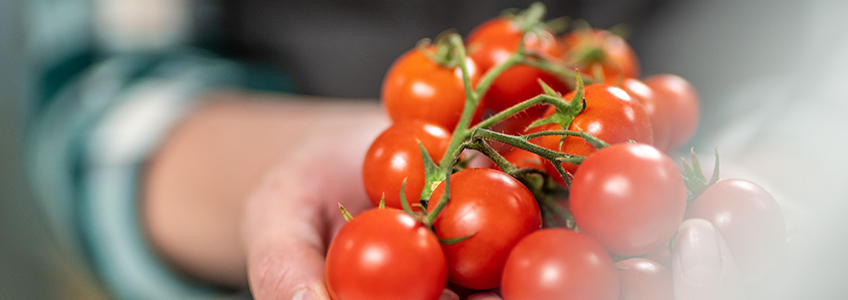Dr. Maurizio Battino, director of the Fundación Universitaria Iberoamericana (Iberoamerican University Foundation, FUNIBER), at its headquarters in Italy, is collaborating on a study that presents a new approach to prevent fungal infections in cherry tomato after harvest.
In the fruit preservation industry, the control of post-harvest diseases is fundamental to guarantee product quality. Gray mold, caused by the fungus Botrytis cinerea, is one of the main threats to the quality and marketability of cherry tomatoes, due to their high moisture content and thin skin that makes them particularly vulnerable to decay after harvest. However, the use of synthetic fungicides has been the main strategy to prevent these fungal infections, despite their environmental and human health risks.
In response to this problem, Dr. Battino participated in a study that focused on the search for safe and environmentally and health friendly techniques. In this regard, the resistance of cherry tomatoes to various fungal infections induced by different physical, chemical or biological stimuli was explored. The effect of LED radiation of various colors and narrow wavelengths on postharvest tomato decay was also investigated.
The results showed that violet light directly inhibits spore germination and fungal growth, and red light stimulates fruit disease resistance; while blue light fulfills both functions, because it stimulates the activity of defense enzymes and the expression of genes related to plant immune response. Continuous exposure to blue light at an intensity of 40 w/m2 for three days can significantly decrease the diameter of lesions caused by the fungus B. cinerea. At the same time, an increase in vitamin C content and surface firmness of tomatoes was observed, suggesting a possible use of this technology for the preservation of these fruits after harvesting.
The results of this study are promising and open new lines of research in the field of crop protection and fruit preservation. Blue light LED technology could not only reduce reliance on synthetic fungicides, but also provide a safer and more sustainable alternative for maintaining the quality of cherry tomatoes after harvest. This represents a significant advance in the agricultural industry and a major step towards more responsible and environmentally friendly practices.
To learn more about this study, click here.
To read more research, consult the UNEATLANTICO repository.
The Ibero-American University Foundation (FUNIBER) offers the Master’s Degree in Nutrition and Food Biotechnology. A program that develops students’ skills to transform food raw materials into healthy and safe food for each individual according to his or her organism.
